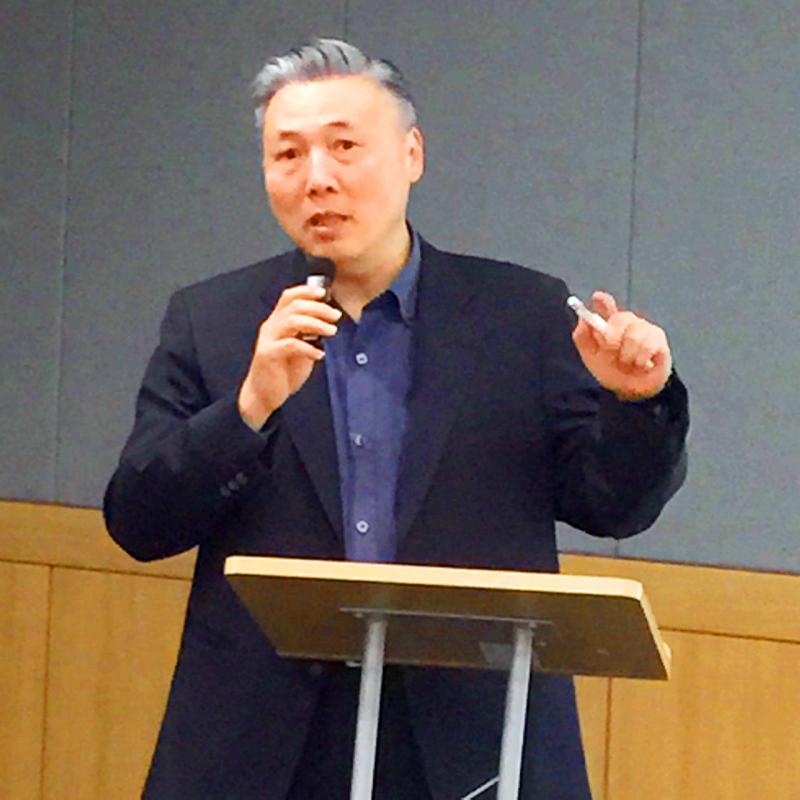ASE Technology Holding Co (日月光投控) yesterday posted 55 percent year-on-year growth in net profit last quarter and retained a revenue growth target this year double that of the global semiconductor industry, given a stable pricing environment and higher factory utilization.
During the quarter ending June 30, ASE posted a net profit of NT$15.99 billion (US$534.28 million), compared with NT$10.34 billion in the second quarter last year.
On a quarterly basis, net profit jumped 24 percent from NT$12.91 billion.

Photo: Grace Hung, Taipei Times
Earnings per share rose to NT$3.69, from NT$2.4 a year earlier and 3.01 percent in the prior quarter.
The company in April said that revenue growth this year would surpass 20 percent on an annual basis.
The world’s largest chip packager and tester’s optimism is built on strong customer engagement, protection of long-term supply agreements, its technology leadership and large manufacturing scale, it said.
About half of ASE’s capacity is covered by long-term agreements. Despite some sectors experiencing inventory corrections, no customers are trying to renegotiate such agreements, ASE chief operating officer Tien Wu (吳田玉) told investors during a teleconference yesterday.
“The overall market is undergoing an inventory correction with some sectors more aggressive than the others. However, some sectors remain constrained,” Wu said.
The data centers, networking, high-performing-computing and automotive devices are still under capacity constraint, Wu said.
“With our diversified customer portfolio and manufacturing flexibility, we are seeing a solid second half of 2022 with quarter-on-quarter growth of our holding company revenues,” he said.
ASE prices remain stable across all service categories in the second half, and the stability is expected to extend into next year, Wu said.
Equipment loading for chip packaging services this quarter is expected to stay at a similar level as last quarter’s range of between 80 percent and 85 percent, with advanced packaging equipment higher than others, the company said. While testing equipment factory usage should be about 80 percent this quarter, it said.
ASE this year expects further margin expansion for its core chip packing and testing services, as well as for its electronic manufacturing services business, notably its system-in-package service, compared with last year, Wu said.
The Kaohsiung-based company raised its gross margin target to between 25 percent and 30 percent in the next few years, compared with a range from 20 percent to 25 percent over the past decade.
The company expects revenue for its chip packaging and testing services to rise slightly this quarter, from NT$160.44 billion last quarter.
Gross margin for the services should also rise from 28 percent in the fourth quarter last year, Wu said.
Next year is likely to be full of challenges and headwinds, with changes being experienced in potential end market demand, Wu said, adding that the company expects seasonality to return in the first quarter, during which ASE usually sees a slowdown in revenue strength.

CHIP WAR: Tariffs on Taiwanese chips would prompt companies to move their factories, but not necessarily to the US, unleashing a ‘global cross-sector tariff war’ US President Donald Trump would “shoot himself in the foot” if he follows through on his recent pledge to impose higher tariffs on Taiwanese and other foreign semiconductors entering the US, analysts said. Trump’s plans to raise tariffs on chips manufactured in Taiwan to as high as 100 percent would backfire, macroeconomist Henry Wu (吳嘉隆) said. He would “shoot himself in the foot,” Wu said on Saturday, as such economic measures would lead Taiwanese chip suppliers to pass on additional costs to their US clients and consumers, and ultimately cause another wave of inflation. Trump has claimed that Taiwan took up to

A start-up in Mexico is trying to help get a handle on one coastal city’s plastic waste problem by converting it into gasoline, diesel and other fuels. With less than 10 percent of the world’s plastics being recycled, Petgas’ idea is that rather than letting discarded plastic become waste, it can become productive again as fuel. Petgas developed a machine in the port city of Boca del Rio that uses pyrolysis, a thermodynamic process that heats plastics in the absence of oxygen, breaking it down to produce gasoline, diesel, kerosene, paraffin and coke. Petgas chief technology officer Carlos Parraguirre Diaz said that in

SUPPORT: The government said it would help firms deal with supply disruptions, after Trump signed orders imposing tariffs of 25 percent on imports from Canada and Mexico The government pledged to help companies with operations in Mexico, such as iPhone assembler Hon Hai Precision Industry Co (鴻海精密), also known as Foxconn Technology Group (富士康科技集團), shift production lines and investment if needed to deal with higher US tariffs. The Ministry of Economic Affairs yesterday announced measures to help local firms cope with the US tariff increases on Canada, Mexico, China and other potential areas. The ministry said that it would establish an investment and trade service center in the US to help Taiwanese firms assess the investment environment in different US states, plan supply chain relocation strategies and

Japan intends to closely monitor the impact on its currency of US President Donald Trump’s new tariffs and is worried about the international fallout from the trade imposts, Japanese Minister of Finance Katsunobu Kato said. “We need to carefully see how the exchange rate and other factors will be affected and what form US monetary policy will take in the future,” Kato said yesterday in an interview with Fuji Television. Japan is very concerned about how the tariffs might impact the global economy, he added. Kato spoke as nations and firms brace for potential repercussions after Trump unleashed the first salvo of